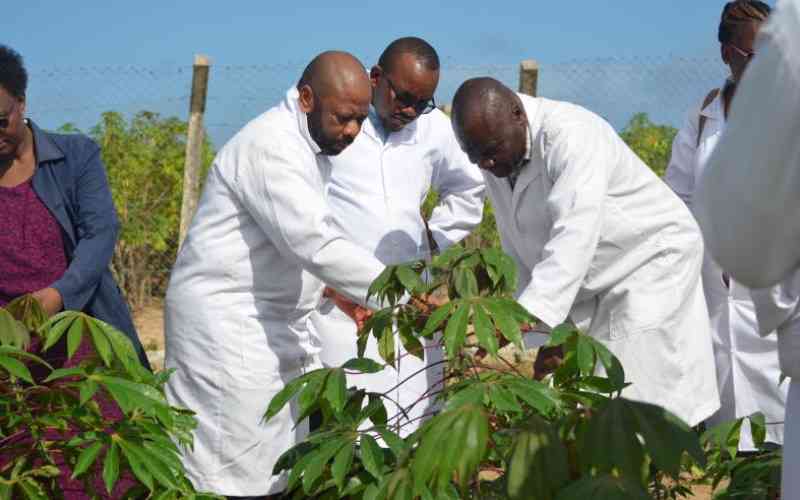
VIRCA Plus Products KALRO Mtwapa Hannington Obiero(right) showing a section of stakeholders a cassava plantation that is in the trial field at KALRO Mtwapa. The Genetically Modified cassavas will be resistant to Cassava Mosaic Disease and Cassava brown stick disease that are a threat to the crop. [Maureen Ongala, Standard]
After 10 long years of battle between proponents and opponents of Genetically Modified (GM) crops, the government finally lifted the ban on GM organisms (GMO). In doing this, it okayed cultivation and importation of food crops and animal feeds produced through biotechnology.